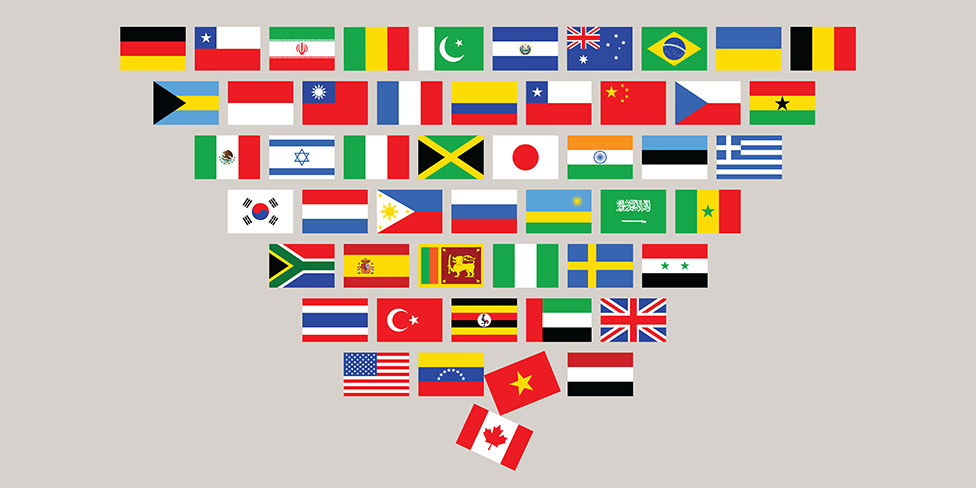-
Reclaiming Internationalization
Keeping minds open as borders close.
-
International student fallout hits the bottom line
Postsecondary sector taking pre-emptive measures to mitigate financial crisis exacerbated by cuts to international study permits.
-
The complex costs of Quebec’s international student policy reforms
International students have gone from being seen as the solution to many issues to the problem.
-
Breaking barriers: when international students have ADHD
Without accommodations, these students are often left to fend for themselves.
-
How EDI policies are failing international students
We need to re-examine the social structures that are responsible for maintaining systematic exclusion.
-
Making outbound student mobility a reality
A rural postsecondary institution shares its journey to help increase Canada’s low participation rates through uncertain times.
-
Virtual exchanges provide accessible and equitable internationalization alternatives
The pandemic has highlighted opportunities to use the tool to build valuable intercultural competencies.
-
The murky world of unregulated international student recruiters
The rapid rise in international recruitment has sparked calls for rules and standards to govern third-party recruiters.
-
The ethical complexities of Canada’s dependence on edugration
More ethical models are needed for Canada’s outdated and malfunctioning internationalization policies.
-
We need to think inclusively when building virtual communities
How a university-based college effectively uses culturally appropriate apps to engage with international students.
-
How can we increase part-time student engagement in global learning programs?
Making programs visible, accessible and student-centred can improve participation.
-
Access denied: High refusal rates of study permits an issue at francophone universities
The application process for international student visas is putting French-language universities at a disadvantage.
-
Support international graduate students by reaching out early
Partnership was key to University of Toronto’s pre-arrival orientation to working as a teaching assistant.
-
The downside of Canada’s addiction to international student money
High tuition filters out poor but often academically qualified students from other countries.
















